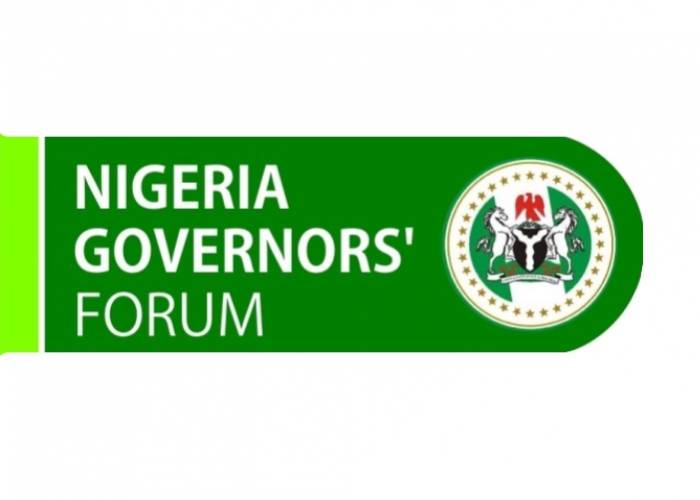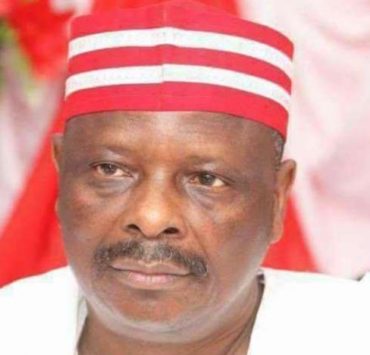NGF: 30% Frontier Exploration, Host Communities’ 3% Deplete Federation Account

Chairman of the Nigeria Governors’ Forum (NGF), Dr. Kayode Fayemi, yesterday, reiterated the state governors’ concerns about the 30 per cent allocation for frontier exploration and the three per cent for host communities as contained in the Petroleum Industry Act (PIA). Fayemi said those provisions in the law assented to by President Muhammadu Buhari on August 16 greatly depleted the Federation Account.
Fayemi spoke in an interview with the Arise News Channel.
The NGF chairman, who is also the governor of Ekiti State, said the governors were not carried along in the enactment of the law. But he pledged that the state chief executives would cooperate with the PIA implementation committee headed by Minister of State for Petroleum Resources, Chief Timipre Sylva.
Fayemi said court action would be the governors’ last resort in trying to address their concerns over the PIA.
However, the federal government yesterday clarified that the proposed Nigerian Upstream Regulatory Commission (NURC), not the Nigerian National Petroleum Corporation (NNPC) Limited, will handle proceeds from the sale of crude oil accruing to the three tiers of government when the PIA becomes fully operational.
Fayemi said the forum believed the provisions of the 1999 Constitution should be adhered to with regard to concerns raised by the governors, including ownership structure, accountability, and transparency.
He criticised the federal government’s handling of repatriated loots, saying the management of such funds is not the exclusive preserve of the federal government since the monies ought to be part of the federation account originally.
Fayemi said, “This is a matter that the entire forum has discussed extensively, and we have come to certain conclusions about what is called frontier funds. Whether it is three per cent or not, our concern there is that whatever you are taking into these places is a depletion of the federation account, that money will not go to the federation account, it would be spread across the few areas that you described as volunteer basis, rather than to the entire federation.
“And we worry more about the entire federation not about selected parts of the federation. For us as governors, that is a distinction without a difference. We are talking about depletion from the federation account, whether it is three per cent or 30 per cent.
“It is money that should come to federation account, that should then be subjected to fair and equitable distribution on principles of sharing, rather than one that is going to be at the whims and caprices of this new limited company.”
The Ekiti State governor said the forum would explore all available options before seeking legal interpretation. He said the Minister of Petroleum Resources had reached out to the forum to say that their concerns would be addressed as an amendment to the new petroleum law.
He stated, “It is not everything that we have to resort to court to resolve. We only do that when all options have been exhausted and we haven’t secured a reprieve.
“On this particular instance, we will work with the implementation committee. And if there is any reason for us to take an alternative measure, we will cross that bridge when we get to that. But at least it has been acknowledged that these issues can be resolved, in some way, shape or form, as we are proposing. We will wait and see before we take any further steps.”
However, Fayemi commended the president for signing the Act. He maintained that the constitutional issues the NGF raised before the bill was passed into law were not addressed.
He said, “As a matter of fact, we have commended these major developments in our country because it is something that has been on the cards for us.
“So, kudos to the president for finally working with the National Assembly to get the PIA in place.
“However, we also believe that whatever we are doing should be done in accordance with the constitution so that we do not have to blame ourselves.
“The issues that governors are concerned about, and which we made clear to the National Assembly when this bill was in the process of becoming an Act, relate to ownership structure and questions of accountability and transparency so that at the end of the day, we don’t subvert the original intention behind the petroleum industries act.”
On the issue of repatriated loots domiciled with the federal government, Fayemi said, “We believe that our president is a stickler to the rule of law and due process and sometimes he doesn’t get a comprehensive advice from those who are the technical people in charge of some of these issues.
“When the matter around recovered loots came up, we communicated with the Attorney General of the Federation and raised our concerns about the source of the money that was allegedly looted anyway, which in our view, was from the federation account. It wasn’t federal government money.
“So when you want to return the loots, you cannot just say you are returning to the federal government and the federal government decides to do whatever it chooses to do with it. We would have preferred a situation in which the funds are returned to the federation account.
“Whatever the government chooses to do with it, there are mechanisms in government that would allow governors to also partake in that discussion. That is why we have the National Economic Council, where we are members and the Vice President is the chair, where we take collective decisions on issues that are germane to both the federal and sub-nationals, and that’s all we were pleading for. It wasn’t a case of being averse to whatever the government has chosen to do with the recovered loot, what we felt is, you cannot take a decision without our input as critical actors in the federation.”
Lawyard is a legal media and services platform that provides enlightenment and access to legal services to members of the public (individuals and businesses) while also availing lawyers of needed information on new trends and resources in various areas of legal practice.













